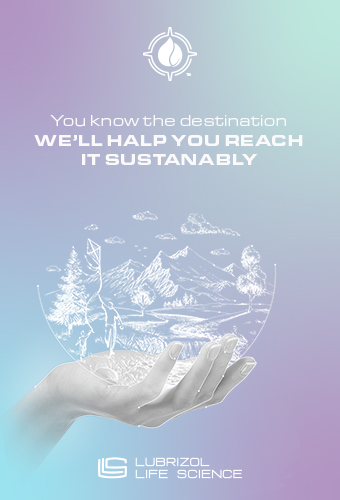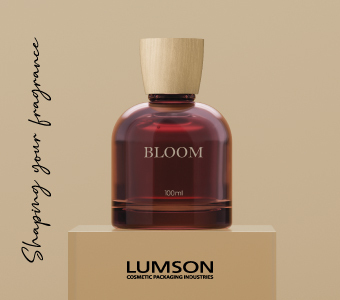As we enter a new decade, key contemporary shifts are impacting consumer behavior. We have entered an era where savvy consumers wish to be treated as individuals, where transparency is key, and where trust is the new currency. In this context, and even more in the light of the recent sanitary events, we will be witnessing major shifts affecting our Beauty industry and its future.
1• Radical balance
In the post-wellness world, balance is only the first step towards a more beautiful self.
In retail, new spaces to restore from urban anxiety invoke calm, quiet, coziness, and intimacy.
From global wellness to intimate wellness, latest developments show the need to reconnect with our most intimate self - our instincts, our emotions, our cycles, our sexual wellness. New indies brands like Dame Products are a declaration of sexual independence and health through pleasure. Cycle-oriented brands like Knours celebrates the female body in all its stages and hormones. The boom of CBD showed just how far destressing skin could go, and consumers are no longer scared when it comes to alternative ingredients.
Balance is shifting to mysticism, infused by a wave of witchy feminism and zodiac codes. It is this new era of New Age, the Gen Z especially have a mystical-driven culture. According to the Fullscreen Report, over a quarter of millennials agree that “horoscopes and astrology influence my purchasing decisions”.
2• Radical enhancement
Tech and wellness are merging, creating human-centered tech, dedicated to skin perfection like a work of art. How is this new? Even more natural consumers are switching to this trend, which we mentioned in our previous article, Skin-icone Valley.
Injections bars and IV-on-the-go centres look like a mindful Glossier. They attract consumers who look for radical solutions or “tweakments”, that are perceived as taboo-free for the younger generations. The nomads turn to the hyaluropen. Less invasive touch ups are booming, and Beauty nurses are taking Instagram by storm (like @facebypinkie) and 3D printing technology inspired by advanced medical treatment. are offered in Spa (eg. Biologique Recherche).
3• Radical freedom
We have shifted from the era of standard beauty, where brands were imposing beauty codes, to an era of self-acceptance of one’s singular beauty, where brands need to service consumers as individuals. Inclusivity is now longer a trend. It is a standard.
Consumers want brands to recognize diversity and help them celebrate every inch of their flaws or imperfection (face, body, skin). They increasingly look for brands that they can connect with, seeking brands driven by “human values”, while they themselves act like brands. Contemporary consumers see freedom as essential - freedom to experience (rather than possess), freedom to consume as they wish (and not just in traditional spaces), freedom of reflecting one’s true self (or at least the self you chose to portray thanks to the filters!).
Beauty becomes a symbol of change, everywhere in the world. From the plus size brand Jstyle Evelett in Korea (see our article about female empowerment) to Naomi Watanabe for Shu Uemura. With the strong claim “a lipstick that makes the difference”, indie brand The Lipstick Lobby embodies the trend, with activist lipsticks that share profits with various American non-profits. Another recent example is the activist brand Lipslut that will be donating 100% of its profits to non-profits such as the CDC Foundation (helping those impacted by the coronavirus).
Brands need to recognize they are not ruling what the beauty standards are anymore. Instead, they need to promote freedom of what consumers want.
4• Radical regeneration
According to the study of JWT, 90% of consumers agree that companies/brands have a responsibility to take care of the planet and its people. So consumers buy according to their convictions, they also expect brands to be purpose-driven.
We have entered a post-green era: the Greta effect, the fires in Australia, and other sanitary crises are changing the game. As sustainability becomes the new normal, beauty brands will need to meet consumers request for performance as well as a better tomorrow for all. The sustainable factor should not be hidden. It needs to be highlighted to boost desire. New Indie brands, such as Amalthea in France, offer upscale refillable solutions, as a natural service consistent with their values and missions statements.
The next step will no longer be waste free, carbon neutrality, or recyclable beauty. It will be about making the necessary changes to enrich the world (or at least take action for the embetterment of tomorrow).
The Detox Market launched a new initiative called the Earth CPR, taking action to become more sustainable as a business. Their objective is to become carbon negative by planting 500,000 trees this year and 2.5 million by 2025. “One thing we’ve been great at as a company is to make people aware of toxicity in personal care. Our next mission is to encourage people to switch to sustainable products. It’s clean beauty times 10,” says Romain Gaillard, founder of the Detox Market (Source: Beauty Independent).
|
Radical Reinvention is also the title of Cosmetics Inspiration & Creation’s latest USA trend reports, Makeup & Skincare. If you wish to know more on each of these trends, contact the agency for more information. |





























